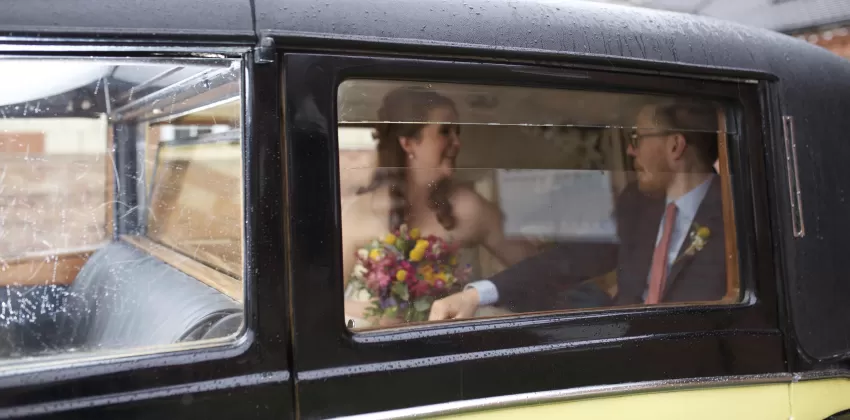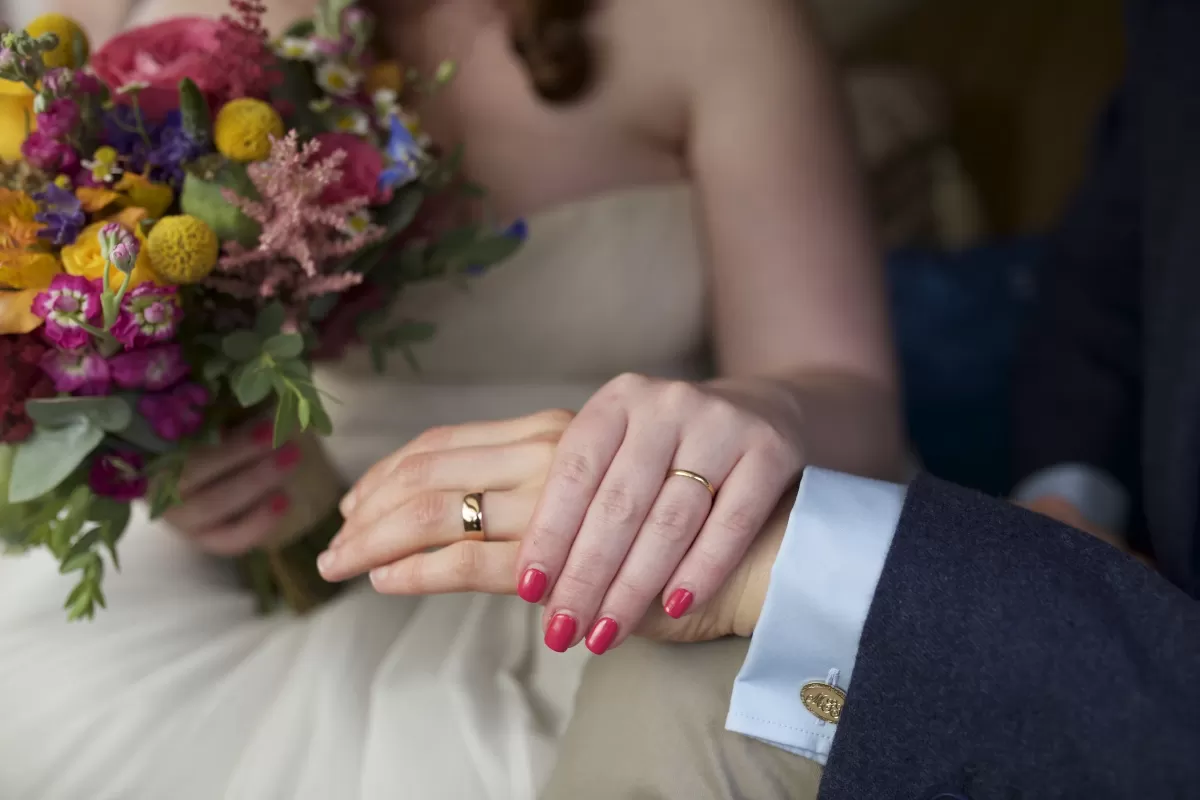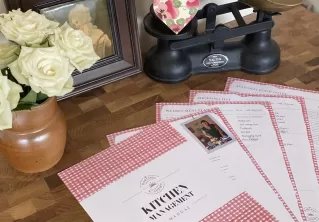How we afford to live on one income

How exactly do couples manage to live on one income today? This is a question thrown at The Darling Academy time and time again. Many assume that traditional housewives must be married to millionaires, and that I must be married to a very wealthy man, but that is most certainly not the case.
It’s often finances that are the biggest roadblock couples are faced with when deciding upon the dynamic of their family life. A big hurdle many cannot see a way over, and while “the working mother” is a normal part of the fabric of society today, not every woman (or her husband) wants that for their family, but often they cannot see a way out of the trap.
The question is;
How do traditional housewives afford to stay home?
While it remains a fact that not every wife will be able to afford to stay home, there are still ways in which many more couples can achieve this dream if they put their minds to it. I hope this post will give you some ideas, and inspire you to make changes where possible. Perhaps there are areas of your household budget you may not have thought about tackling before.
Today we have my friend Jules sharing her story. She and her husband were once a dual income partnership who were barely able to put together savings, and now they are a one-income family, without financial concerns, and are thriving! Not only that, but they’ve managed to save for a house deposit since she left work to have their son….
This is the inspiring story of the Storiers…
![]()
“So what are your plans for work after you have the baby?” I can’t tell you how many times I was asked this whilst pregnant with my first child.
With a stable teaching job, I was very fortunate to have a number of options available to me. “Oh, I think I’ll go back part time. Maybe two or three days a week” I would smile and say. Whilst deep down, I knew my heart longed to be at home and raising my baby full time: it’s what I had always dreamed of!
Like so many new mums I’ve spoken to, we didn’t think we could afford for me to stop working, so I resigned myself to paying someone else to do what I longed to - bringing up my child - while I went back to teaching to earn enough money to afford their services.
After my baby arrived, the prospect of the end of my maternity leave filled me with dread. I didn’t feel at all ready to leave my little boy and the logistics of commuting to work and having to scrape together the money to buy a second car was overwhelming. In spite of having had two good salaries coming in, the money pot always ran dry come the end of the month, and I know so many people can relate to this experience.
Our savings accounts were opened with good intentions; sometimes we even put money in them; but as soon as we ran out of money or encountered a big expense, they were emptied yet again. We didn’t even live a particularly extravagant life! We had a very affordable rented house, no car payments, no debt… But we also had no budget, and this is precisely what needed to change.
If we wanted to live our dream, it was abundantly clear to us that we needed to make some big changes and start budgeting.

How halving our income improved our finances.
I knew if I didn’t plan on going back to work, I would need to repay my maternity pay, so I sat my husband down and told him I wanted to do an experiment: live on his wage alone until the end of my maternity leave. It was a scary prospect but it was also an exciting opportunity. I set to work with a notebook and calculator and began to make our budget.
I went through our online banking and added up our bills (both annual and monthly) and direct debits. And then… I was a little bit stuck. I’d never really been taught how to make a budget before. Maybe it’s a British thing, but money and how people spend it just isn’t talked about enough. All I could think of was some friends who I knew used plastic wallets for different categories (I remembered they had a “Haircut” and “Gifts” wallet, but that was about all I recalled), and put cash into each wallet each month. I decided that seemed worth a bash, so I had a go at making my spending categories, allocated an arbitrary figure to each one, popped to the bank to withdraw my funds for the month and then went out and blew most of my month’s “Household” budget on the aforementioned plastic wallets.
That first month was a learning curve! Watching the physical cash dwindle in each wallet was both sobering and empowering: for the first time in a long time, we were actually in control of our money.
Watching the physical cash dwindle in each wallet was both sobering and empowering: for the first time in a long time, we were actually in control of our money.
As time wore on, I became so much more aware of how we spent our money and how woefully ignorant we had been previously. Month on month, we tweaked the amounts in each category and made saving a priority. We invested in a bigger freezer and began planning and buying our food monthly; we reviewed our bills, cancelling subscriptions we could live without and shopping around for cheaper providers for our household bills; I decluttered and sold everything from guitars to clothes to an old bed. When we needed to buy something, we would buy second hand, or at least on sale.
So many habits, many of which we’d had before, but with our new focus we really committed to them. It’s safe to say, the experiment succeeded. We survived on one fairly average income, I handed in my notice, paid back my maternity pay, and never looked back at my old life or our old finances. What’s more, we came out of the experiment better off than we had ever been when we had twice the household income!
That was two years ago now, and we still follow many of the same principles. With the onset of the Covid-19 pandemic, we ditched the cash and moved our envelopes online (in the form of numerous instant saver accounts, which made the lady at the bank look at me like I had two heads!) and we have continued to set ourselves more and more challenging savings goals. This dogged determination and laser-focus on our financial fitness has enabled us to save a house deposit in 18 months and now we are completing our first low-buy year and working towards building our emergency fund to be enough to fully support us for 6 months. Finances used to be a dread, but now it’s almost a game! A rather fun, and freeing one at that.
All it takes is a shift in focus, a few little changes here and there concerning “how” you manage your money, and the follow-through to make it work.
I understand that not everyone is in the privileged position we were, and that we were very lucky to not have any major debts or be committed to a large mortgage when we started our journey; but I truly believe, that with determination and a deeper understanding of where our money goes, anyone can take the first steps towards greater financial security and achieving their dreams.
![]()
Tips for married couples living on a one-income budget.

Track your household spending as it currently stands.
Spend at least a month tracking what you actually spend without changing anything. Be really thorough and honest. Learn to recognise where you are both spending frivolously, or incurring unnecessary expenses (takeout coffee for example), and tackle your attitude towards it. Are you perhaps shopping when you are bored? Ask yourself what can you do about it, and think about if that money could better serve you elsewhere.
Even investing in a nice (secondhand) coffee machine so you can take your latte with you on the commute will save you lots of money in the long run [see: point 3 below].
Set yourselves a budget.
I like to start with all the stuff that has to get paid; rent/mortgage, household bills, any debt repayment that you may have. Then… How much do you want to save? Prioritising this will help you to be stricter with your other spending.
A note on “other spending”: Make sure your categories are specific and try to avoid “borrowing” from other areas.
See where you can spend more initially, in order to save long-term.
Some bills such as car insurance work out cheaper if you pay upfront annually. Set aside some money each month to cover this cost for renewal each year, and you’ll end up saving in the long run.
Think of other places you can spend a little more on, in order to save overall. Perhaps buying bulk food items and storing them (such as dried goods like rice), can actually reduce the cost. Perhaps a coffee machine will save you money on take-out coffee?
Have clear financial goals.
It doesn’t matter if it’s to reduce your working hours, become a housewife, pay off debt, buy a house, or save for the future. Know why you’re doing it, and keep that dream front and centre in your mind.
Get comfortable talking about money with your significant other.
It doesn’t matter who takes charge of the budget, or who is “better” with finances (it’s different for every married couple), but you do need to be able to have frank discussions about what you spend and both know what you’re working towards.
Give yourself grace, you’ll likely make a few mistakes here and there.
Don’t beat yourself up if you go over budget or forget to plan something in. It’s a learning experience and if you give up at the first hurdle you won’t get anywhere. Just pick yourself up and try again.
Budget for what brings you joy!
You don’t have to give up absolutely everything fun in the pursuit of financial freedom. If a magazine, fresh flowers or a houseplant is important to you, then put it in your budget! Then you can enjoy it with zero guilt knowing that it’s accounted for! The important thing to remember is that real life and fun still needs to happen, it’s just more “curated” now.
Jules’ example of a monthly budget.
This example demonstrates the monthly budget of a three person family, two adults and a toddler.
Rent and non-negotiable bills: £910.99
Groceries: £150
Household Consumables: £50
Entertainment/hobbies: £40
Personal care: £20
Children’s clothes, activities, toys, books: £40
Clothing/clothing maintenance: £30
Gifts: £20
Petrol: £50
Holiday: £60
Annual bills: £80
Car maintenance: £100
Savings: £300 (+ whatever is surplus to the budget)
Giving: as you feel is appropriate according to your circumstances.
You may choose to pool money from certain areas into others for a short time. For instance, you may forgo a holiday budget in order to pay down debt. The same too with savings, that may need to be your allocation for clearing your credit card for the time being.
Please also note that these accounts/envelopes will often accumulate funds month-on-month if the budget amount is not spent in its entirety. If one month we spend nothing on clothing, that budget stays put, and is added to the next month. Thus acting like a mini savings account specifically for that budget category.
Making money work for you and your marriage.
I know the cost of living is high in this current time, and that not everyone will be able to afford to stay home, even if they really want to, but I’d like to encourage you to live within your means, and learn to live on less than you make. Our generation is constantly bombarded with so much “noise” about spending more in order to make yourself appear successful in life, but I have never felt more control over our lifestyle, or more content than the day we started taking our finances seriously. They don’t teach these things in school (as a former teacher I know this), and so you will need to take it upon yourselves. It’s an important life lesson, but one that is incredibly liberating.
Where some marriages breakdown over money concerns, having a good handle on it all acts as a kind of insurance against the pressures of the outside world. I wish you luck on your budgeting journey! If you would like to learn more about budgeting, you can follow me over on my blog Mindful Money Home.
With love,
Jules xxx
Keeping up with the budget Queen...
Jules is a good friend of mine and lives in the Midlands with her husband and two year old boy. Jules volunteers as a breast feeding support peer, and enjoys cooking from scratch. She has ambitions to train as a financial coach to help newly married couples, and young families, and is planning on sharing her journey and budgeting tips on her new blog Mindful Money Home.
Happy Budgeting!
Alena xxx
I hope you enjoyed this article, if you like our values here at The Darling Academy and found this post useful or inspiring, would you kindly consider supporting the blog.
All content and images in this article are copyright of The Darling Academy and are not to be shared or reproduced without our express permission.


